| Abstract | PURPOSE:
This article argues for the use of modality specificity as a unifying framework by which to conceptualize and diagnose central auditory processing disorder (CAPD). The intent is to generate dialogue and critical discussion in this area of study.
METHOD:
Research in the cognitive, behavioral, and neural sciences that relates to the concept of modality specificity was reviewed and synthesized.
RESULTS:
Modality specificity has a long history as an organizing construct within a diverse collection of mainstream scientific disciplines. The principle of modality specificity was contrasted with the unimodal inclusive framework, which holds that auditory tests alone are sufficient to make the CAPD diagnosis. Evidence from a large body of data demonstrated that the unimodal framework was unable to delineate modality-specific processes from more generalized dysfunction; it lacked discriminant validity and resulted in an incomplete assessment. Consequently, any hypothetical model resulting from incomplete assessments or potential therapies that are based on indeterminate diagnoses are themselves questionable, and caution should be used in their application.
CONCLUSIONS:
Improving specificity of diagnosis is an imperative core issue to the area of CAPD. Without specificity, the concept has little explanatory power. Because of serious flaws in concept and design, the unimodal inclusive framework should be abandoned in favor of a more valid approach that uses modality specificity.
|

